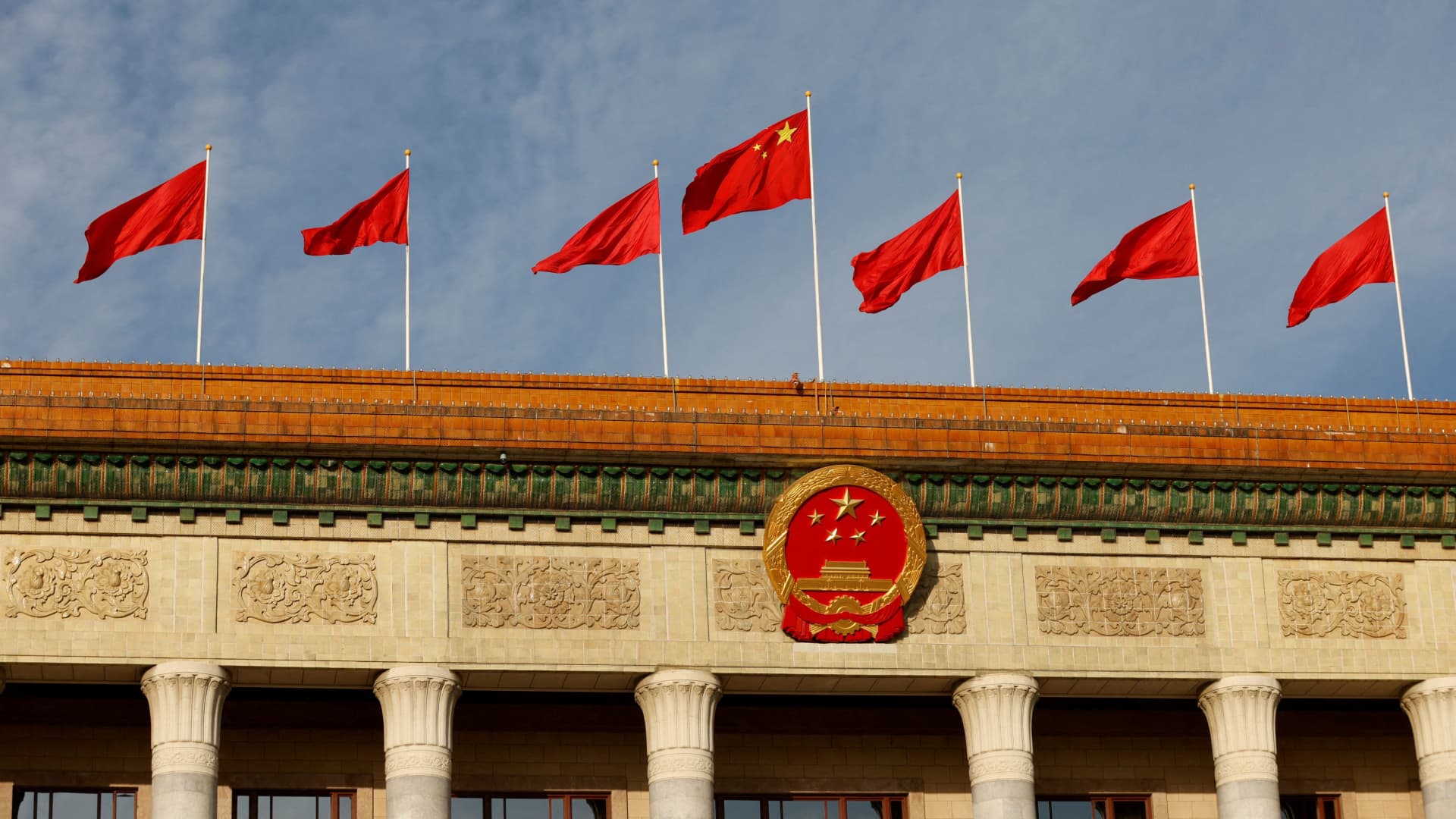A Chinese flag flutters on top of the Great Hall of the People ahead of the opening ceremony of the Belt and Road Forum (BRF), to mark 10th anniversary of the Belt and Road Initiative, in Beijing, China October 18, 2023.
Edgar Su | Reuters
BEIJING — China is beefing up national security measures by expanding its protections of state secrets to include a broad category of “work secrets.”
Chinese President Xi Jinping on Tuesday signed an order to formally adopt revisions to a law on “Guarding State Secrets,” according to state media, which reported that legislators passed the updated law at a meeting earlier that day.
The new rules, set to take effect May 1, describe how precautions taken for state secrets should also apply to unclassified information known as work secrets. The law broadly defines work secrets as information that would result in an “adverse impact” if leaked, and said specific measures would be released separately.
That article on work secrets is “the most problematic,” said Jeremy Daum, a senior fellow at Yale Law School’s Paul Tsai China Center.
“There is a risk that individual departments will overzealously identify matters as ‘work secrets,’” Daum said. He also founded the website China Law Translate, which published an unofficial English translation of the new rules.
“This limits the public right to know and also exposes people to potential liability.”
For foreign businesses, it’s the lack of clarity that will remain an unquantified risk to doing business in China.
Jeremy Daum
Yale Law School’s Paul Tsai China Center
While China regularly discloses a certain amount of information about government plans and economic data, the country is often considered more opaque relative to many developed countries.
For example, high-level officials in China have disappeared from public view without formal explanation. Policies, even those that support businesses, don’t always come with specific implementation dates.
Last year, new Chinese laws on espionage and…
Read the full article here

Leave a Reply